What about using AI in other forms of Marketing?
Numerous businesses are quickly implementing intelligent technology solutions to promote operational efficiency while enhancing the customer experience. This includes the marketing teams that support these businesses. Artificial intelligence (AI) marketing platforms are a common form of these clever solutions. Through these platforms, marketers can develop a more detailed, all-encompassing understanding of their target audiences. The insights generated by artificial intelligence that is gleaned from this optimization process can then be used to increase conversions while also lightening the workload of marketing teams.
What exactly is Marketing based on Artificial Intelligence?
Artificial intelligence (AI) marketing employs technologies to make automated decisions based on data collection, data analysis, and additional observations of audience or economic trends that may affect marketing efforts.
When speed is critical, AI is frequently used in marketing campaigns. With the help of data and customer profiles, AI marketing tools can learn how to interact with customers most effectively. They then serve them personalized messages at the ideal moment without the need for human intervention, resulting in the highest level of efficiency.
Today’s marketers frequently use AI to support marketing teams or to carry out more tactical tasks that don’t require as much human nuance.
Examples of AI Marketing Use Cases are:
– Data analysis is the process of gathering and sorting through massive amounts of marketing data from various programs and campaigns that would otherwise need to be done by hand.
– In order to create content, customer service bots, personalize user experiences, and other things, natural language processing (NLP) is used.
– Media buying is the process of foreseeing the most efficient ad and media placements for a company in order to reach its target audience and maximize the return on investment from its marketing strategy.
– AI marketing tools assist businesses in determining which marketing or business growth strategy to employ based on historical data or external data inputs.
– Writing both short and long pieces of content, such as video captions, email subject lines, web copy, blogs, and more, for a marketing strategy is known as a content generation.
– Modifying a user’s interaction with a marketing resource, such as a web page, social media post, or email, to match the user’s previous preferences in order to nudge them into taking a particular action, like clicking a link, signing up for something, or making a purchase.
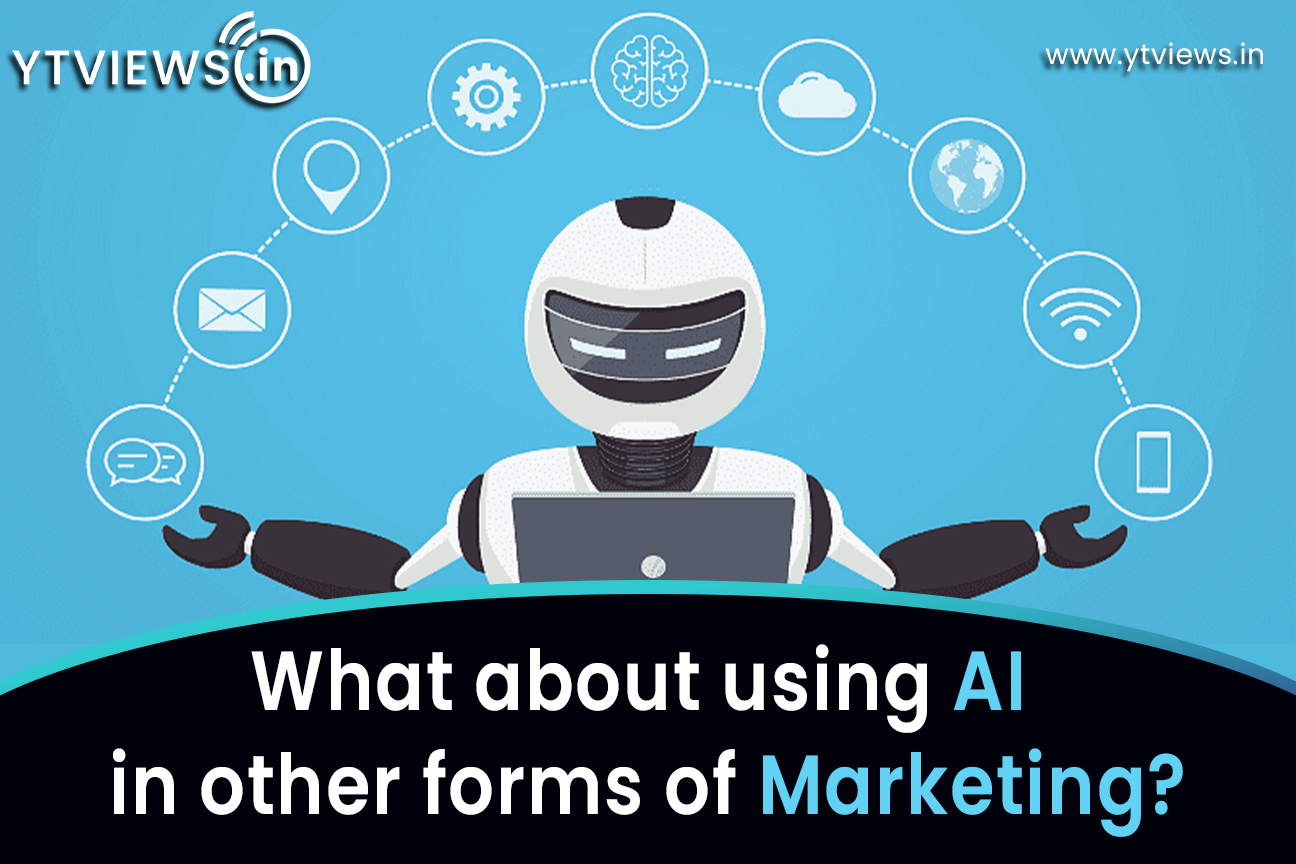
How to Use AI in Marketing?
When implementing AI in marketing campaigns and business operations, it’s critical to start with a well-thought-out plan. By doing this, marketing teams can reduce expensive obstacles and get the most return on their AI investment in the shortest amount of time.
Marketers should take into account the following key points before implementing any AI marketing tools:
1. Create goals: Your AI marketing program should start out with clearly defined goals and marketing analytics, just like any other marketing initiative. Start by identifying parts of campaigns or operations that, for example, segmentation, could be improved. The next step is to create precise KPIs that will show how effective the AI-augmented marketing campaign has been; this is crucial for qualitative goals like “improving customer experience.”. “.
2. Data Privacy Guidelines: Ensure that your AI marketing platform won’t go beyond the bounds of permitted data use in the name of data personalization at the outset of your new marketing program. To maintain compliance and consumer trust, make sure privacy standards are established and implemented as necessary in your AI marketing platforms.
3. Sources and Volume of Data: Digital marketers typically need to have a huge amount of data available to them in order to start using AI marketing. These data will teach the AI marketing tool about consumer preferences, general trends, and other elements that will affect the success of AI-enabled marketing campaigns. The organization’s CRM, earlier marketing initiatives, and website data can all provide this information. Marketers may also add second and third-party data to this, such as location data, weather data, and other extraneous elements that could influence a consumer’s choice to make a purchase.
4. Acquire Talent in Data Science: It can be challenging to work with vast amounts of data and deliver insights when marketing teams lack staff members with the necessary data science and AI expertise. Organizations should collaborate with outside groups that can help with data collection and analysis to train their tools for the best performance and to make ongoing maintenance easier in order to get AI marketing programs off the ground.
5. Uphold Data Quality: Machine learning and AI marketing programs will develop decision-making skills as they process more data. However, if the data being fed to your AI marketing program is not accurate and standardized, the insights will not be helpful and may even lead to decisions that harm rather than help your bottom line. Marketing teams must work with data management teams and other lines of business to establish procedures for data cleansing and data maintenance prior to implementing any AI marketing programs.
Think about the following 7 crucial data dimensions as you do so:
– Accuracy.
– Comprehensiveness.
– Reliability.
– Pertinence.
– Transparency.
– Reliability.
– Representativity.
Related Posts
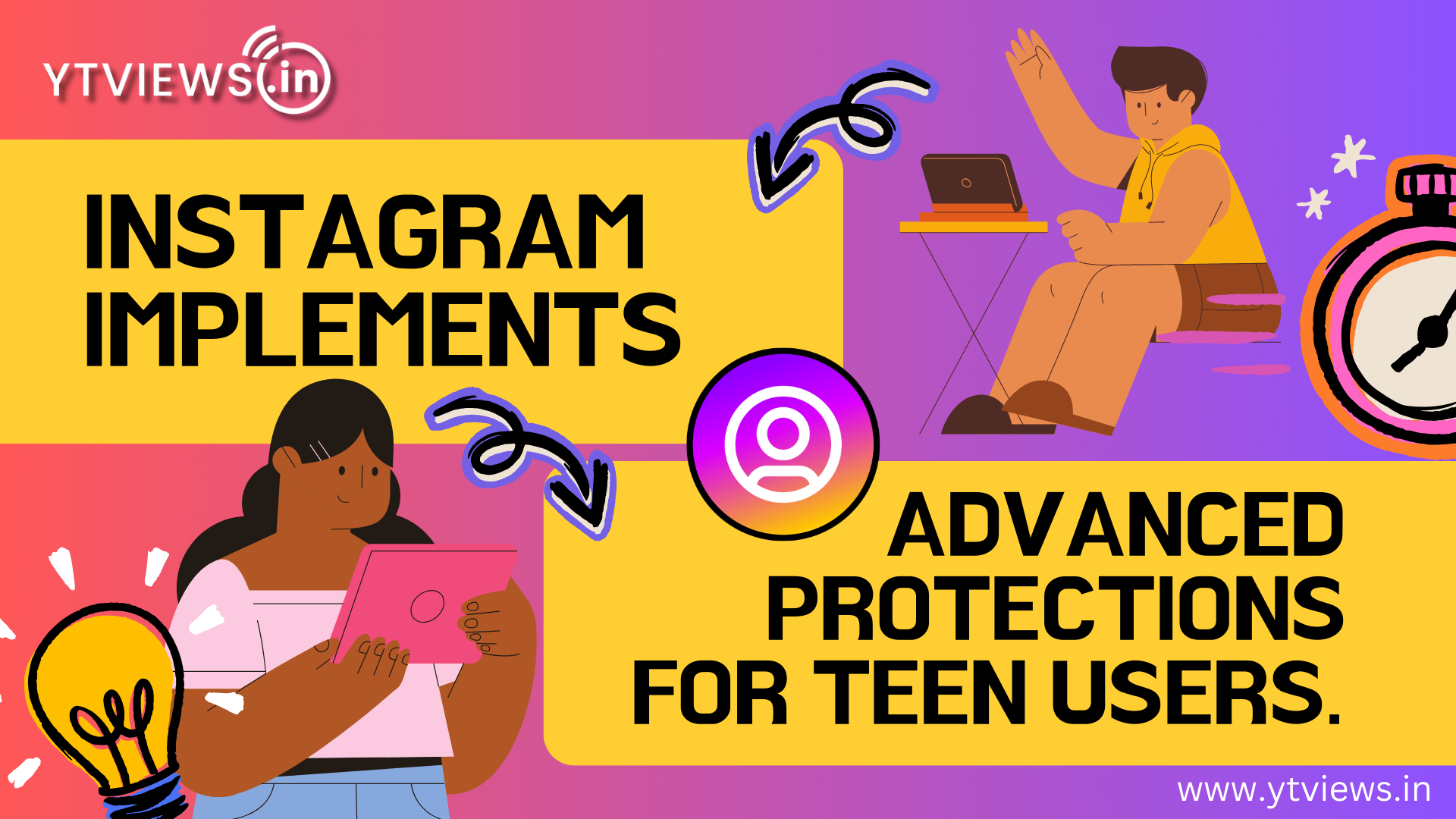
Instagram Implements Advanced Protections for Teen Users.
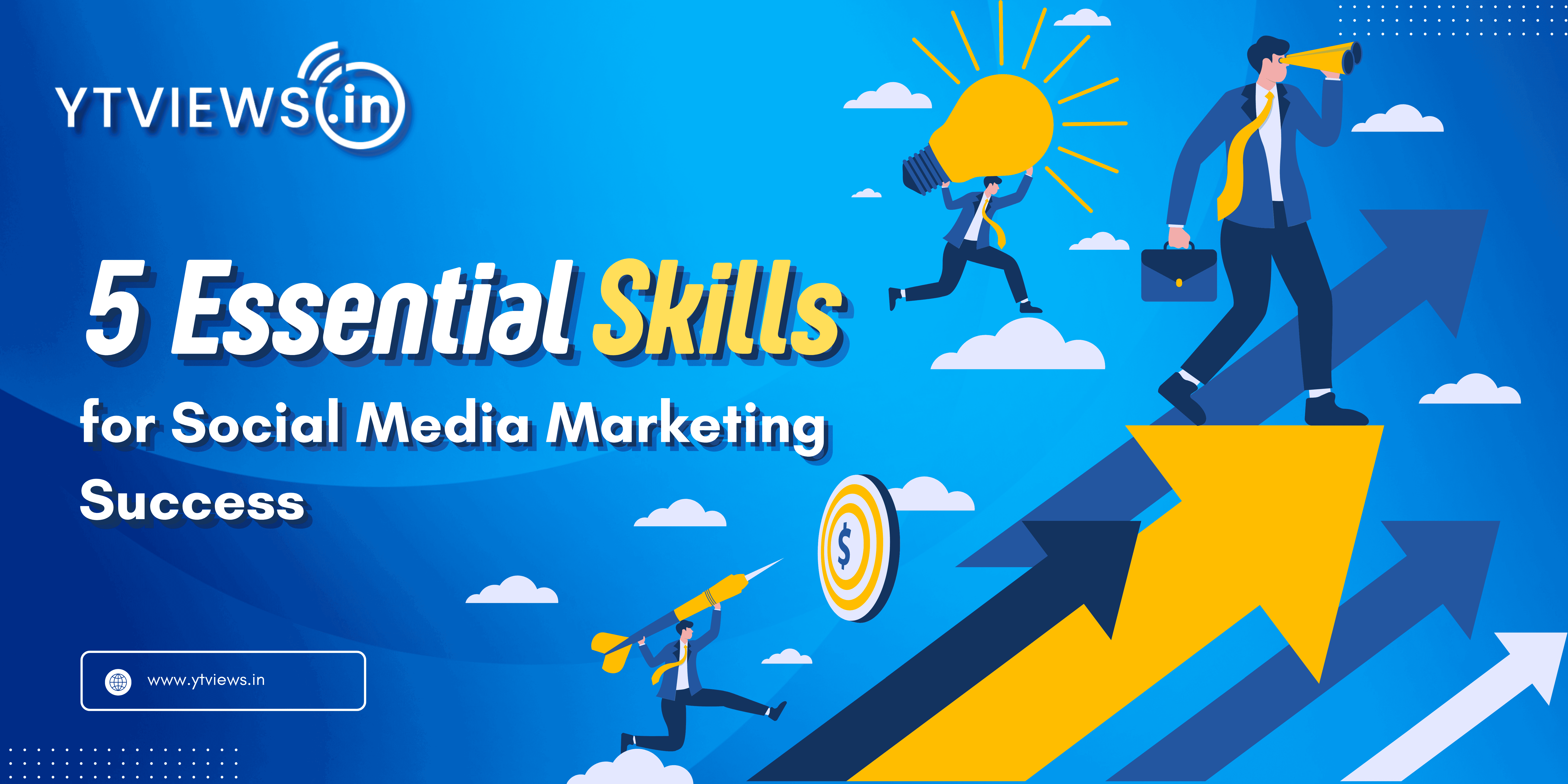
5 Skills to Become a Successful Social Media Marketer
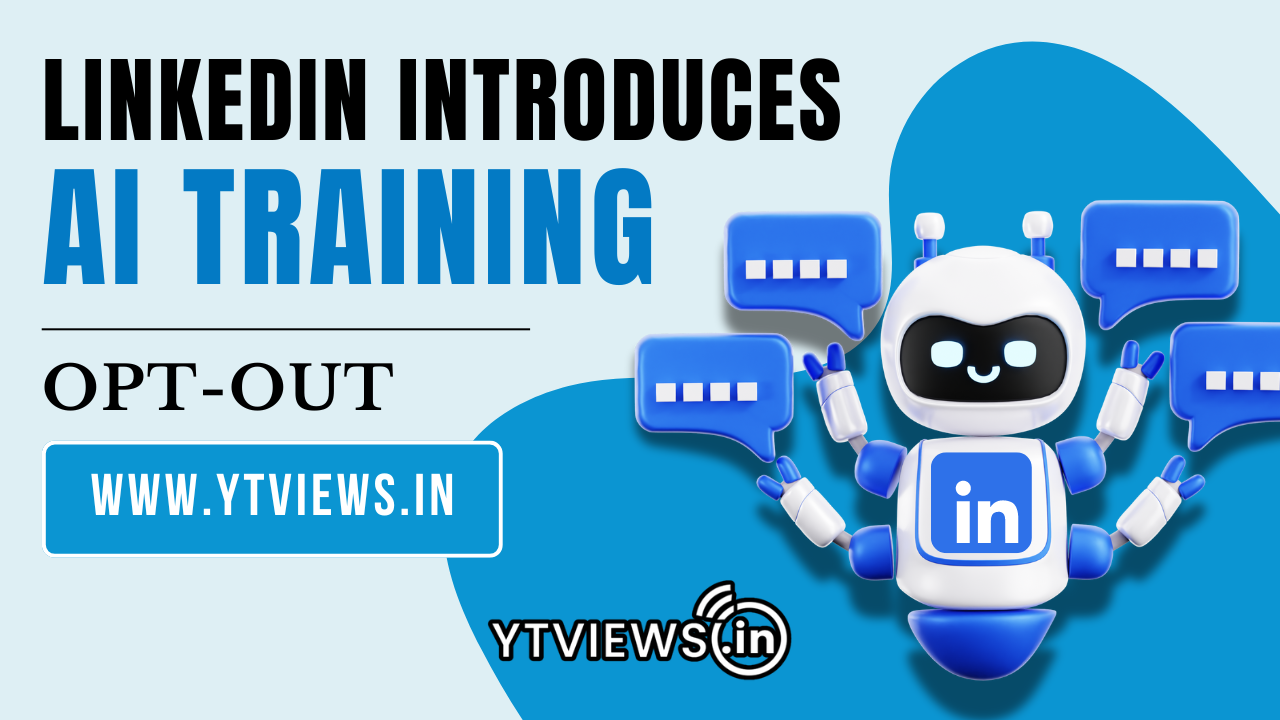
LinkedIn Adds AI Training Opt-out Option

What Video Editing Software Do Youtubers Use in 2024?
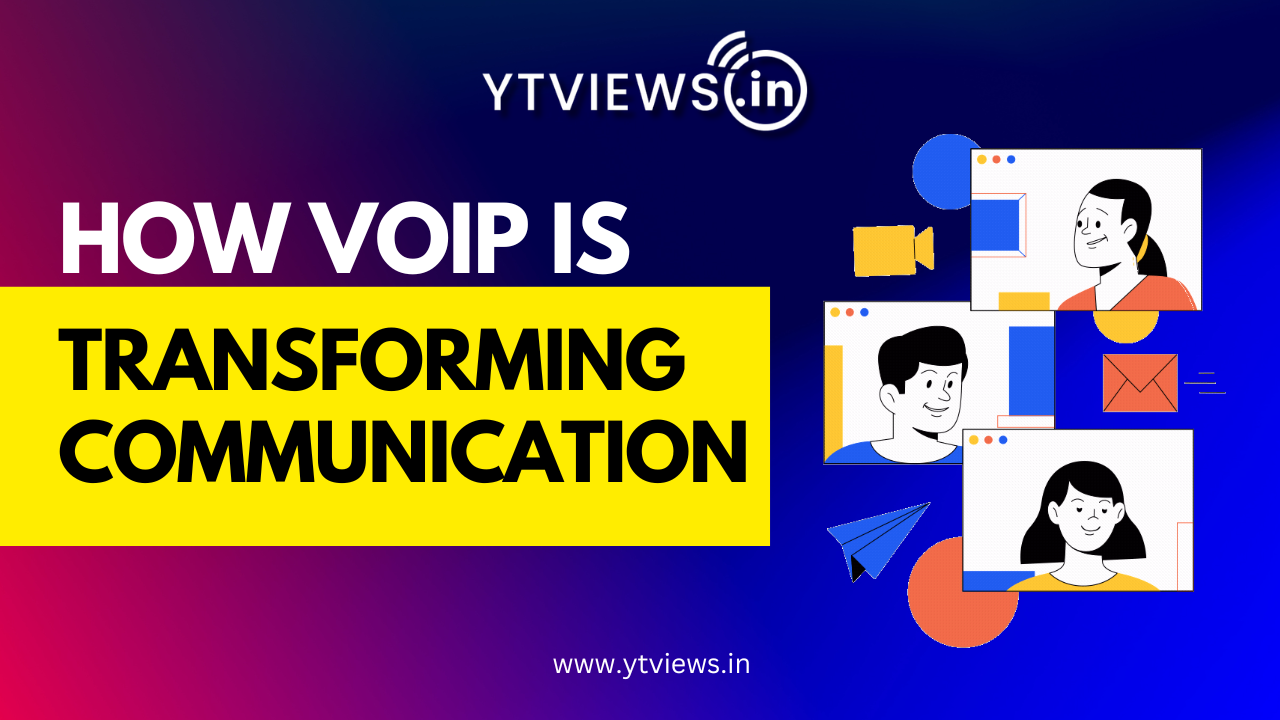
How VoIP Services are changing the Way We Make Calls






































